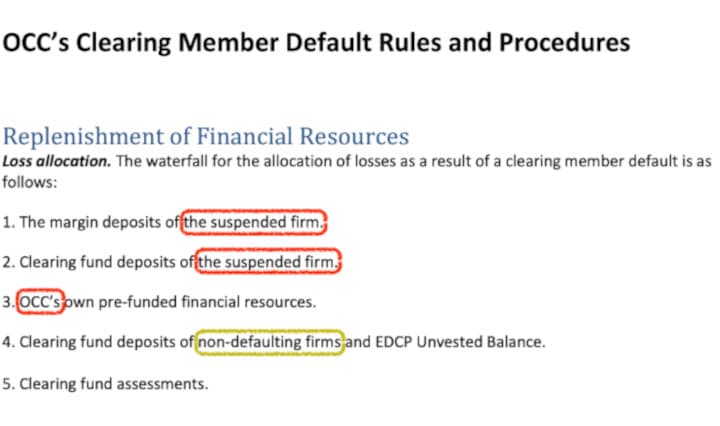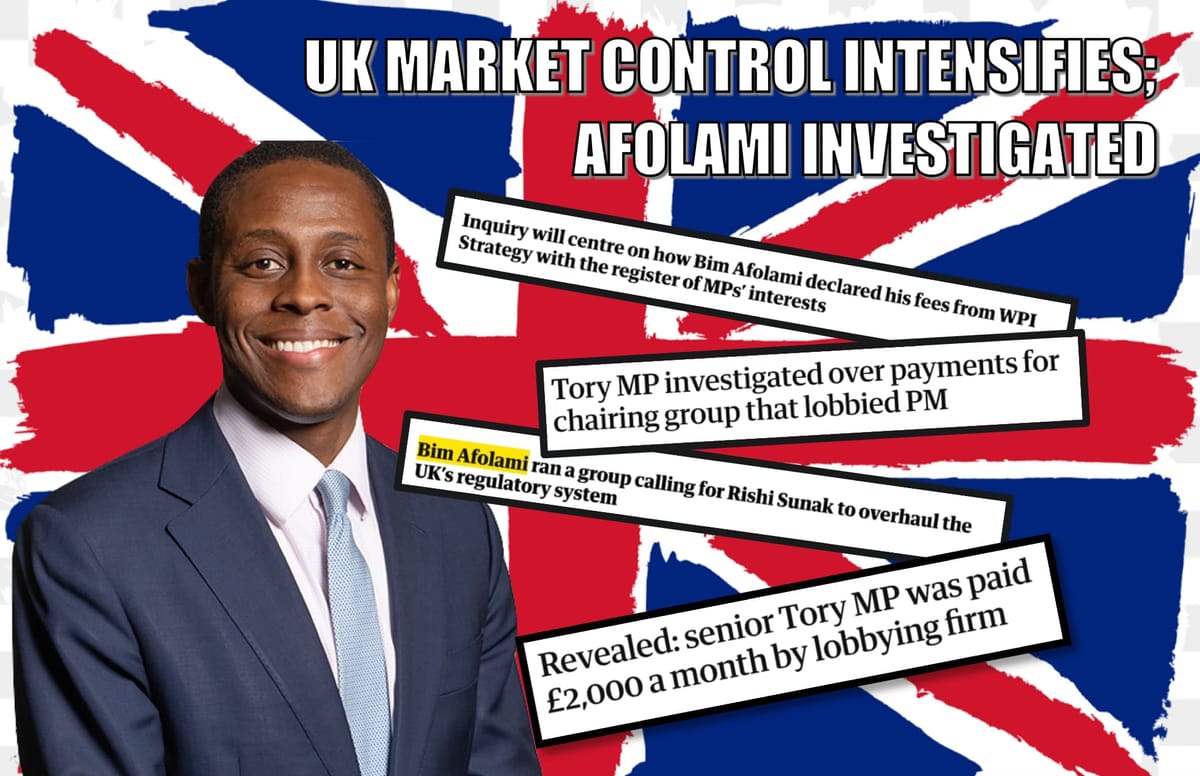Inflation Alert! June 2023 Survey Reveals Surveyed Consumers Have: Falling Short-Term Inflation Expectations, Holding steady in the Mid-Term but Rising Long-Term, Rising Home Prices, and improving Consumer Financial Outlooks.

https://www.newyorkfed.org/newsevents/news/research/2023/20230710







Wut mean?
The June 2023 Survey of Consumer Expectations shows some interesting trends about inflation and home prices.
The survey shows that people expect inflation to decrease in the short term (one year ahead), stay the same in the medium term (three years ahead), and increase a bit in the long term (five years ahead).
- This is important because inflation can affect the purchasing power of money - if inflation is high, your dollar buys less--for example, in May, the purchasing power of $100 in January 2000 is now $55.60 (down $.10 from April). Remember, CPI tracks the loss of the purchasing power of your dollars, and thereby the purchasing power of your hard earned labor.
- For GameStop, folks that got in around the time Burry/DFV/Cohen got in now have nearly 16% less purchasing power when they bought from the shops then compared to now:

- Folks are still expecting home prices to continue to rise.
- This is the highest expectation in almost a year.
- Folks expect their earnings to grow by 3.0% over the next year.
- This expectation has been fairly stable, fluctuating between 2.8% and 3.0% since September 2021--ALL HIGHER than the Fed's accepted 2% rate of growth.
- Folks believe there's a 37.7% chance that the U.S. unemployment rate will be higher one year from now, which is a decrease from previous expectations.
- This is the lowest expectation since April 2022.
- Paradoxically, folks think there's a 12.9% chance they could lose their job in the next 12 months, which is the highest expectation since November 2021.
- This increase is mainly among people aged 40 or older.
- Folks expect the prices of certain goods and services to change in the next year.
- Those surveyed expect gas and food prices to decrease slightly, but they expect the cost of college education, medical care, and rent to increase.
- People are feeling a bit more optimistic about their financial situations and the availability of credit.
However, should they? As we saw the other day, this could be a temporary feeling?

Wut mean?
- Commercial Chapter 11 Bankruptcies: There were 2,973 filings in the first half of 2023, a 68% increase from the 1,766 filed in the same period in 2022.
- Individual Chapter 13 Filings: These increased by 23% during the same period.
- Overall Commercial Filings: There were 12,107 filings in the first half of 2023, an 18% increase from the 10,258 in the first half of 2022.
- Small Business Filings (Subchapter V): There were 814 filings in the first half of 2023, a 55% increase from the 525 in the same period in 2022.
- June 2023 Filings: Commercial filings increased 12% to 2,123, and commercial Chapter 11 filings increased 9% to 404. Subchapter V elections increased 111% to 198.
- Total Bankruptcy Filings: There were 217,420 filings in the first half of 2023, a 17% increase from the 185,352 in the same period in 2022.
- Total Individual Filings: These increased 17% to 205,313 in the first half of 2023, from 175,094 in the first half of 2022.
- Individual Chapter 13 Filings: There were 85,390 filings in the first half of 2023, a 23% increase from the 69,367 in the same period in 2022.
- June 2023 vs June 2022: Total bankruptcy filings increased 17% to 37,700. Commercial filings were up 12% from 1,891, and total individual filings were up 18% from 30,307.
These statistics show a significant increase in bankruptcy filings, both for businesses and individuals.
Data shows things for consumers are not any better:


- Total household debt has risen by $148 billion, or 0.9 percent, to $17.05 trillion in the first quarter of 2023.
- Mortgage balances climbed by $121 billion and stood at $12.04 trillion at the end of March.
- Auto loans to $1.56 trillion.
- Student loans to $1.60 trillion.
- Credit Card debt $986 billion.
However, unlike the banks above, there are no fancy programs designed to keep households afloat in this inflating economy--and boy are households starting to feel it, especially in the areas like services and housing (that are BIG components of CPI--and way more 'sticky' than goods).
For example, on the housing front:

To try and further drive home the shaky ground households are on, let's revisit the Fed's Economic Well-being US Household 2022.
- "fewer adults reported having money left over after paying their expenses. 54% of adults said that their budgets had been affected "a lot" by price increases."
- "51% of adults reported that they reduced their savings in response to higher prices."
- The share of adults who reported that they would cover a $400 emergency expense using cash or its equivalent was 63 percent.
It is the younger generations starting to see itself break into delinquency now:


Student Loan repayments restarting in October WILL lead to more defaults:

https://www.marketwatch.com/story/bidens-student-loan-on-ramp-explained-missed-payments-wont-hurt-credit-but-interest-keeps-adding-up-1bcbbae5
People are going to die because of this


https://www.federalreserve.gov/econres/feds/termination-of-snap-emergency-allotments-food-sufficiency-and-economic-hardships.htm
To meet the rising need for food and nutrition assistance during the pandemic in the United States, all states were approved to provide Emergency Allotments (EA) to households enrolled in the Supplemental Nutrition Assistance Program (SNAP). In this analysis, we use the Census Bureau’s Household Pulse Surveys and exploit staggered state-level variation in dissolution of the SNAP EA payments to study whether the end of EA is associated with food-related challenges and economic hardships. Our findings indicate that EA termination is followed by a decrease in the likelihood that adult survey respondents had sufficient food for consumption and an increase in the probability of experiencing difficulty in paying meeting with usual household expenses. These findings provide policy-relevant insights into the potential impact of the nationwide termination of the EA payments that came into effect in early 2023.

- Auto loans are above 3% delinquency for (30-39) and approaching 5% for (18-29)
- Credit Cards are above 6% delinquency for (30-39) and approaching 9% for (18-29)
- Student Loan delinquency is being artificially suppressed currently.
- When folks (18-29) and (30-39) have to pay Auto loans, Credit Card debt, and Student loans all at the same time, delinquencies across all 3 will jump bigly.
- People will DIE being priced out of their lives in favor of raising interest rates to fight inflation for a problem the Fed created to begin with.
TLDRS:
Folks expect inflation (the rate at which prices for goods and services rise) to decrease in the short term, stay the same in the medium term, and increase slightly in the long term.
- This means people think their money is likely to buy less in the future.
- The survey shows that folks surveyed think home prices will continue to rise, reaching the highest expectation in almost a year.
Folks expect their earnings to grow by 3.0% over the next year.
- This expectation has been fairly stable, fluctuating between 2.8% and 3.0% since September 2021--ALL HIGHER than the Fed's accepted 2% rate of growth.
- Folks expect the prices of certain goods and services to change in the next year--they think gas and food prices will decrease slightly, but the cost of college education, medical care, and rent will increase.
- People surveyed are slightly more optimistic about their financial situations and the availability of credit.
- I try and show this hope is likely misplaced and it is only setup to start getting worse come October.
- Reminder, while banks have the liquidity fairy, 'we' get the promise of 2 more rate hikes this year, Atlanta Fed President Raphael Bostic yet again enrichens himself inappropriately from his position.
- To fix one end of their mandate (price stability) from the inflation problem they created, the Fed will continue sacrificing employment (the other end of their mandate) to bolster price stability by continuing to raise interest rates--causing further stress for the businesses and households identified above.
- I believe inflation is the match that has been lit that will light the fuse of our rocket.



